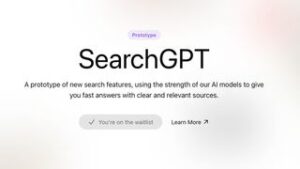Darin Fisher has built a lot of web browsers. A lot of web browsers. He was a software engineer at Netscape early in his career, working on Navigator and then helping turn that app into Firefox with Mozilla. Then, he went to Google and spent 16 years building Chrome and ChromeOS into massively successful products. Last year, he left Google for Neeva, where he worked on ways to build a browser around the startup’s search engine. And now, he’s leaving Neeva to join The Browser Company and work on Arc, one of the hottest new browsers on the market.
Arc, which has been in an invite-only beta for more than a year, is trying to rethink the whole browser UI. It has a sidebar instead of a row of tabs, offers a lot of personalization options, and is meant for people who live their computing life in a browser (which is increasingly most people). CEO Josh Miller often talks about building “the internet computer,” too, and using the browser as a way to make the internet more useful.
Fisher has been an advisor to The Browser Company for a while, but Monday is his first official day at the company as a software engineer. Ahead of his new gig, Fisher and I got on a call to talk about why he thinks browsers are due for a reinvention — and why he thinks a startup is the best place to do it.
The answer starts with the browser’s defining feature: tabs. Fisher doesn’t hate tabs — in fact, he helped popularize them. But he hates that using a modern browser involves opening a million of them, not being able to find them again, and eventually just giving up and starting all over again. “I remember when tabbed browsing was novel,” Fisher says, “and helped people feel less cluttered because you don’t have as many windows.” But now, “even when I use Chrome,” Fisher says, “I get a bunch of clutter. At some point, I just say, ‘Forget it, I’m not even going to bother trying to sort through all these tabs. If it’s important, I’ll open it again.’” Browsers need better systems for helping you manage tabs, not just open more of them.
Fisher’s stance is not exactly controversial, and few would disagree with the idea that there are bound to be better ways to organize a browser. But it’s really hard to make changes to any app once it hits a certain level of scale and maturity. Just look at Safari on iOS, Fisher says: when Apple moved the URL bar from the top of the screen to the bottom, users freaked out. “But why was [Apple] motivated to do that? Well, you’re on a phone, and your thumbs are at the bottom, not the top. And so you want to access the tabs, the URL bar — having all the controls down at the bottom is a lot more convenient.” It was better, but it was different, and different is bad. Fisher’s team at Google once ran a similar test on Chrome, he says, to similar ends. “It was hard to make that change because users struggled to make that change.”
But the even more intractable problem, at least for the Chrome team, is that building a great web browser isn’t Google’s only goal. Chrome exists in large part to put a search engine front and center, which Fisher describes to me as like “a brick wall” for all kinds of browser innovation. “Anything we did that helps you get back to what you were doing, it means you weren’t searching, right?” Fisher says. Better tab management means less searching; sending you straight to the page you want means fewer search results and fewer ad impressions. Making you close your tabs and reopen them all the time isn’t just acceptable for Chrome; it’s a victory. Fisher and his team had lots of UI ideas and new features, but “all these good ideas die on the floor.”
What the iPhone did for native apps, Arc hopes to do for web apps
The best way to improve the browser, Fisher ultimately decided, is to just start from scratch. Arc is full of new ideas about how web browsers can work: it combines bookmarks and tabs into one app switcher-like concept; it makes it easy to search among your open tabs; it has built-in tools for taking notes and making shareable mini websites. The experience can be jarring because it’s so different, but Fisher says that’s part of what he’s excited about. “This is not stuff people haven’t talked about before,” he says, “but actually putting it together and focusing on it and thinking about the small steps that go a long way, I think that’s where there’s so much opportunity.”
The last couple of years have been boom times for browser lovers in general. Some developers are beginning to sour on making apps for every platform and are turning back to making web apps, while users are looking for new ways to manage their online lives across devices and platforms. As a result, a number of companies have been vying to replace Chrome and Safari with their own ideas. Brave doesn’t mess with the UI but is trying to rethink the privacy and business models for browsers; Sidekick is turning the browser into an app switcher a la the iPhone’s homescreen; DuckDuckGo is building a desktop browser to go along with its privacy-focused search engine. Most of these browsers are built on the same Chromium infrastructure that powers Chrome, which means they can implement new ideas without breaking the web.
Fisher likes to compare a browser to an operating system, which matches with The Browser Company’s idea that Arc isn’t just a browser but rather an iOS-like system for the open web. “It has task management UI, it has UI for creating and starting a journey, but there’s so much more in between,” he says. What the iPhone did for native apps, Arc hopes to do for web apps. Fisher says he’s interested in improving the way files move around the internet, for instance, finding a better way than the constant downloading and uploading we all do all day. He likes that Arc has a picture-in-picture mode that works by default, pulling your YouTube video out when you switch tabs. All these make the web feel more connected and cohesive rather than just a bunch of tabs in a horizontal line.
This is, by the way, another idea that is decidedly not new. ChromeOS, which Fisher also helped create, was also an attempt to make a desktop OS from the browser. “But what ChromeOS didn’t do,” he says, “is really reimagine how you experienced the web. It’s still just the Chrome browser.” It put a browser on the desktop without really considering how the two should interact. Another Google project, the Fuchsia operating system, aimed much higher — combining Android and ChromeOS into a fully native and connected system — but hasn’t yet really panned out.
Mobile is another place Fisher says browsers have woefully underserved their users and may turn out to be an even trickier problem to solve. “The experience of using a mobile device is very much as if somebody took a Netscape browser and just shrunk it down onto a phone.” Managing tabs is even worse on mobile, and there’s practically nothing in the way of tools that help people quickly move between things and find information.
In some ways, though, mobile represents an even harder surface on which to make progress. Because Apple and Google so tightly control their operating systems, there’s no way to build a Chromium browser and ship it to people’s smartphones. Android and iOS are both so focused on native apps that they seem to have largely left the browser behind. But here, too, there’s energy in the other direction. As Apple, in particular, continues to lock down the OS and try to extract even more revenue from developers and users, the web is an increasingly useful solution. Microsoft built game streaming that works in Safari; you can pay for apps in a browser without giving Apple 30 percent.
There are plenty of big, thinky ideas in Fisher’s head about how to make browsers better and change the internet in the process, but there’s also a lot of low-hanging fruit. On mobile, in particular, he says, “there are so many opportunities because the starting point is so archaic.” He’s vague on the details of his plans — and The Browser Company hasn’t really started working on a mobile browser yet anyway — but says that’s a big focus for him going forward.
Most immediately, he says he’s eager to find simple ways to make the internet work better for people. We have to be able to do better than windows full of tabs, right? Fisher uses the phrase “don’t boil the ocean” a bunch of times during our conversation while explaining a lot of low-touch ways to make the internet more usable: personalizing things so your browser feels more like it’s yours; improving sync so you can access all your stuff everywhere; making things easier to find and move between; adding more tools so you can take notes or save things without needing a whole separate app.
The Browser Company is already working on a lot of the things Fisher is interested in. That’s why he says he joined the company and joined it as a software engineer rather than a big-shot exec. He wants to muck around in the codebase, to build things himself as Arc goes from invite-only Mac app to cross-platform operating system in the coming months. There are a lot of new ideas in the app, many of which are bad and some of which might change everything. That’s Fisher’s sweet spot. “There’s lots of challenges and obstacles for Arc to be successful, and I’m eager to go work on those problems,” he says.
In talking to Fisher, it’s clear that he sees an opportunity to finally build the browser he’s been wanting to build for years. With none of the shackles of Chrome’s market share or Google’s business model and none of the cruft that inevitably comes with decades of things working pretty much the same way, he’s free to try new things in new ways. Some of which he’s been thinking about for decades.





